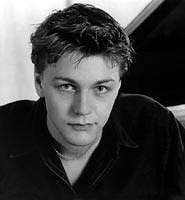S & H Concert Review
Balakirev, Rachmaninov, Shostakovich; Alex Slobodyanik (piano), Philharmonia Orchestra, Valery Gergiev, RFH, 22nd May, 2003 (AR)
This ‘sell-out’ all Russian programme opened with a pop classic: Mily Alexeyevich Balakirev’s Overture on Three Russian Themes. Whilst this musical blini was conducted with great bravura there was something disappointingly formulaic and bland about it; Tchaikovsky incorporated one of the themes into the finale of his Fourth symphony with far greater success and invention.
If that had been a disappointment, Rachmaninov’s Rhapsody on a Theme of Paganini was a revelation: from the hypnotic opening bars, Alex Slobodyanik held you in his hands spellbound from then on. His playing shifted gear in tone, colour, mood and intensity for each the 24 variations, making him sound like 24 different pianists, so extraordinarily versatile was his subtle and flexible playing. The celebrated hyper-romantic variation 18 was the most moving part of this performance, with Gergiev coaxing forth a deeply expressive string tone to melt with the soloist’s impassioned playing. Throughout the more lyrical passages, Gergiev got the violins to play with a hushed, shimmering tone which I’ve never heard from this orchestra before. While Rachmaninov uses huge resources, Gergiev kept his large orchestra perfectly in balance with the soloist, never submerging him, and producing playing that was rhythmically adroit and perfectly judged: a mesmerising and memorable performance.
Shostakovich’s Symphony No.7 in C, Op.60 (‘Leningrad’) opens with ‘War’ (allegretto) and Gergiev conducted it with a ferocious energy, and an inexorable forward thrusting momentum. The brooding blanket of deep strings immediately sets the scene of this dark score, and Gergiev gave great weight and attention to the cellos’ and double basses here, and indeed throughout the symphony, which heightened the drama and poignancy of this work commemorating the heroism of the people of Leningrad and their resistance to the two year siege of their city by the Germans in WW11 .The razor sharp and plangent solo violin of Christopher Warren-Green led straight into the famous side drum taps. Here Gergiev slowly and subtly built up the sinister march rhythms, knowing exactly how to pace this menacing music. The climax was overwhelming, with the percussion playing with a nerve shattering violence, brilliantly conjuring up, in Shostakovich’s own words: "those gloomy, menacing Leningrad nights, in the thunder of exploding bombs and the glow of fires."
This ‘gloomy’ and ‘menacing’ movement ended on a witty note, with a parody of the major side-drum tapping theme played by piano with a jazz syncopation, and a muted trumpet, perfectly and stylishly realised.
With Memories (Moderato pocco allegretto) – described by the composer as "a lyrical scherzo, recording happy times and events" - the conductor got the ‘cellos to play with great warmth, interjected with a beautifully expressive oboe in the second subject which sounded strikingly Mahlerian. The sudden bursts of brass and percussion came in with great impact and precision, as if to disrupt the ‘memories’ symbolised by the dancing strings, and eventually resolved this movement with playing of a hushed solemnity.
In My native field Gergiev’s conducting became even more expressive as he seemed to dig with his hands into the violins, securing playing that took on a deliberately acidic tone, possessing a strident and mordant intensity, punctuated by the unnerving horn entries. Victory (allegro non troppo) opened with soft rumbling timpani atmospherically delivered by Andrew Smith and accompanied by gentle, sedate strings. The mood soon changed with brass, percussion and woodwind taking on a threatening, metallic sound. Here Gergiev’s conducting took on an even greater urgency and energy, building the first climax perfectly, the orchestra surpassing themselves in the intensity of their playing.
The conductor’s hold on the final crescendo was perfectly judged, with the closing passages being an overwhelming experience, with bass drum and timpani driven in like nails, leaving the audience with a feeling of exhilarated despair.
It was a fitting tribute to Shostakovich that the conductor held up the score of the symphony to an ecstatic audience. And Gergiev and the Philharmonia gave it a fitting performance.
Alex Russell


 Return to:
Return to: